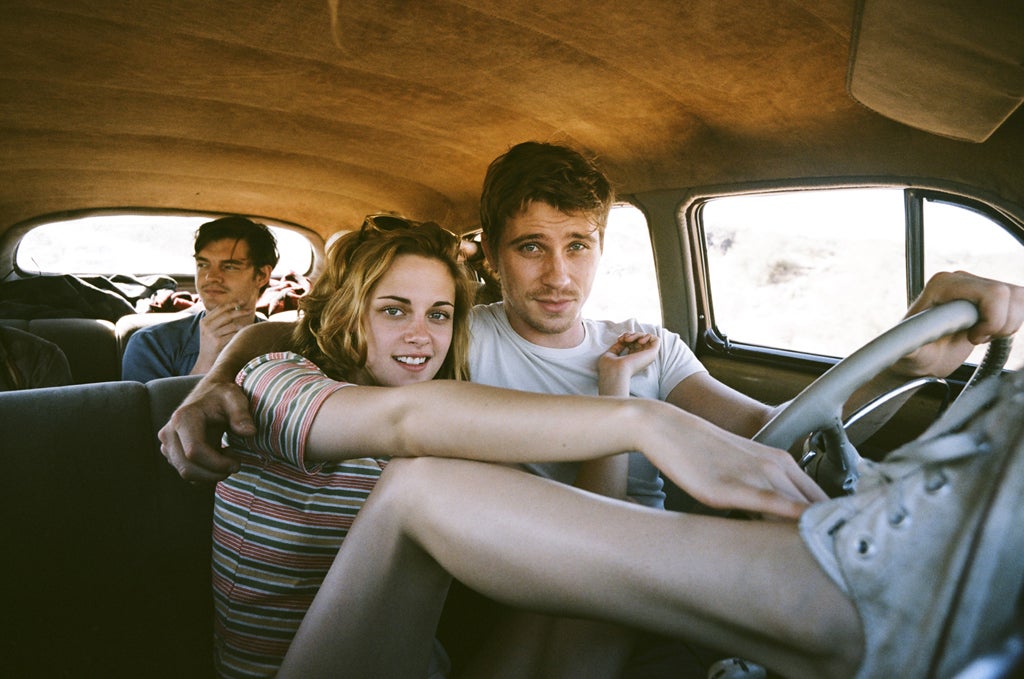On the Road (15)

Jack Kerouac's cult novel On the Road, first published in 1957, has sold more than ten million copies but never before been filmed. After watching this Walter Salles-directed adaptation, you begin to understand why. The very term "cult novel" seems to include within it a warning to film-makers: don't go there. And the warning is always ignored.
There's no doubt the book will still have many eager readers to come, but it's hard not to feel that this film will have chipped away some of its cultish glamour. The problem with "the romance of the road" is that so many movies in the last 40 years have gone there, most of them chasing the tail exhaust of Easy Rider in 1969. This adaptation, however faithful it may be to the book, looks awfully tame in 2012.
Salles (with co-writer José Rivera) has already made a big road movie, The Motorcycle Diaries (2004), in which the young Che Guevara and his pal Alberto Granado shared an odyssey around South America in 1952. Charting the way that Guevara, then a medical student, witnessed at first-hand poverty and dispossession on a massive scale, it was essentially about the awakening of a political consciousness. On the Road cannot claim any such significance, unless you count a young man's awakening to the power of psychotropic drugs.
Sam Riley (star of Joy Division biopic Control) plays budding wordsmith and Kerouac alter ego Sal Paradise, whose father has just died. One of his writer friends Carlo (Tom Sturridge) takes him to meet Dean Moriarty (Garrett Hedlund), an ex-con and drifter who characteristically greets them at the door bollock-naked. It becomes clear that Sal and Dean are soul mates, and will spend some high old times together criss-crossing America, often with Dean's teenage girlfriend Marylou (Kristen Stewart) providing company and sexual favours to both. Farewells and reunions come thick and fast. The first half-hour alone features more man-hugs than a Premier League warm-up.
The film looks wonderful, shot in an aura of nostalgic affection by Eric Gautier, who also photographed The Motorcycle Diaries. Covering the years between 1947 and 1951, it captures a bygone bohemian quaintness when evenings of Benzedrine and scotch were followed by days of driving very fast along the highways – they even get pulled over by the cops! Sal just can't get enough of the wild life and the ones who dare to live it: "The only people who interest me," he says in voiceover, "are the mad ones, the ones who are mad to live, mad to talk... the ones who never yawn or say a commonplace thing but burn, burn, burn like Roman candles across the night." Woah. The problem with this rapturous declaration is that you take a look at Sal's friends and think: huh?
What might carry an audience is the casting of Riley and Hedlund, who do a lot of cool-dude cavorting, moody smoking, swigging from beer bottles and talking in gravelly tones, as if they're contesting an award for the best Tom Waits impersonation. The prettiness quotient is maintained by Kristen Stewart, softpedalling the mannerisms, thank God, and Tom Sturridge – bespectacled, poetic and outrageously flattering to his real-life model Allen Ginsberg (there hasn't been a more cockeyed match-up since Emily Blunt played the young Queen Victoria). Viggo Mortensen contributes a lively cameo as the younger William Burroughs, sleeping child on one arm, heroin tourniquet on the other. Amy Adams and Elisabeth Moss are glimpsed as the defeated wives of various boho wanderers. This is a world in which the men do pretty much as they like and the women are either sex toys or shrill stay-at-homes, a reminder of the starkly pre-feminist mood. Dean's abandonment of wife (Kirsten Dunst) and child provokes a mouthful of abuse you can't help feeling he deserves.
Mostly stripped of Kerouac's incantatory prose, On the Road seems less a celebration of freedom than a mild chronicle of misbehaviour. In Mexico they smoke a joint the size of a Cohiba and dance themselves dizzy in a local bordello, and again, the experience just doesn't pack the punch it might once have had. When Sal is shivering under the bedclothes the next day with a nasty case of dysentery, it didn't make me think of the literary adventurer earning his spurs – it made me think of The Hangover. Occasionally, something happens to burst the bubble of cosy camaraderie. Steve Buscemi pops up – fun at last! – as a working stiff whose apparent straight-dealing conceals a taste for trade. But it's small reward for two hours of episodic aimlessness. This is a central paradox of the movie; given how dearly it prizes being "on the move" it's completely lacking in forward momentum.
What will annoy fans of Kerouac is the absence of risk and radicalism so integral to the cult of the Beats. Salles has made it so sanitised and cuddly it could almost be a commercial for bottled beer. And yet On the Road is a book which inspired a generation, and perhaps even the one after that. In aiming to translate the force of a "literary classic" film-makers can simply undermine it. This adaptation, with its bankable stars, may give the book a major sales spike. But I imagine a modern audience will look at those characters Sal describes with such lyrical intensity and wonder, "Roman candles"? They're not even sparklers.
Join our commenting forum
Join thought-provoking conversations, follow other Independent readers and see their replies
Comments
Bookmark popover
Removed from bookmarks